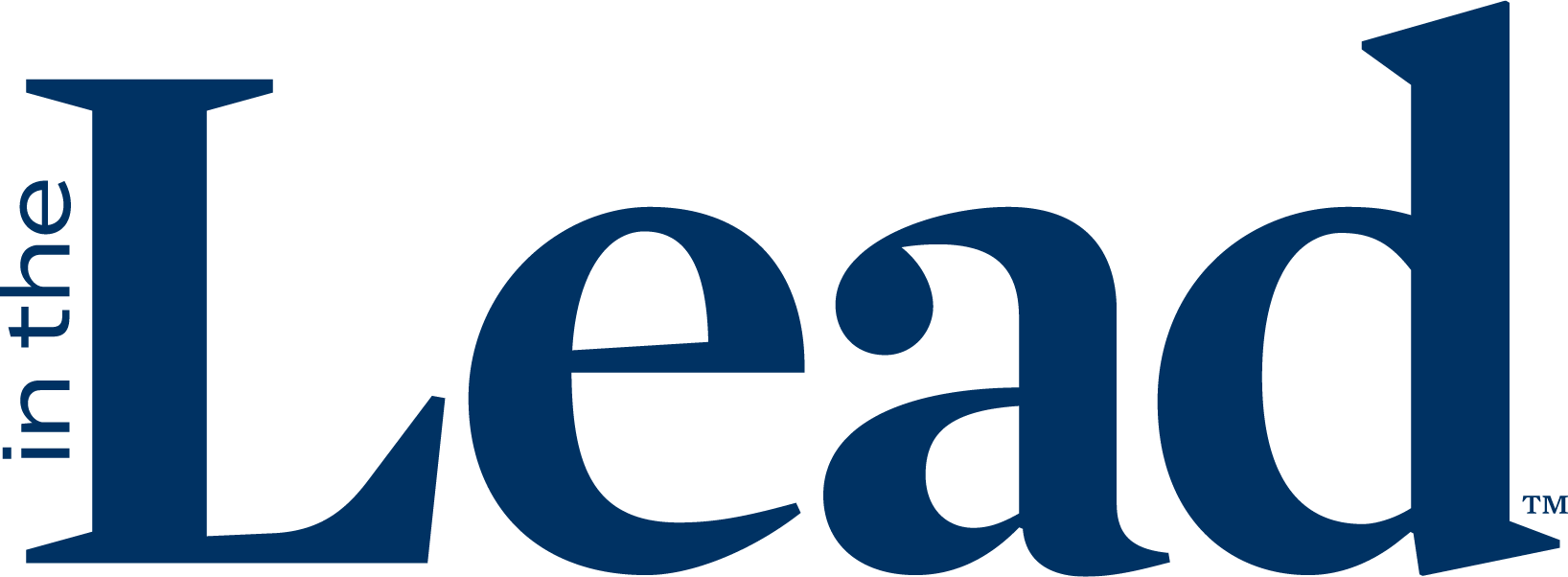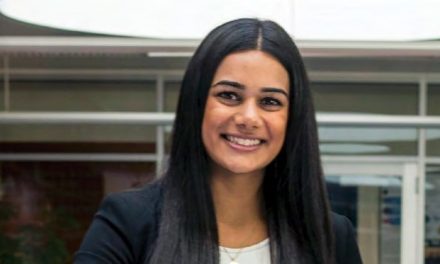Unlocking the strengths and struggles of our future Gen Z leaders.
I have had the privilege of developing millennial and Gen Z leaders for the past 22 years. I’ve developed young leaders in a variety of settings: as an Army officer developing America’s sons and daughters in the military; as a professor and baseball coach at the U.S. Military Academy at West Point; and, more recently, as the executive director of the Buccino Leadership Institute at Seton Hall University.
Along the way, I’ve helped to develop leaders who would go on to become Rhodes and Truman scholars, pitch in the major leagues, start their own companies and even earn the distinction of being the first woman to graduate from the U.S. Army’s hallowed Ranger School.
The Gen Z population was born after 1996, so technically I’ve been developing leaders in this generation since 2014 while teaching at West Point. Like the rest of you, I’m still learning about Gen Z leaders and what makes them tick. But what follows are some lessons I’ve learned about Gen Z from a leadership development perspective.
Gen Z leaders are ambitious, but that ambition must be properly channeled
WHILE MILLENIALS often receive a bad rap for too much complaining about the world’s problems, Gen Z leaders are eager to solve them. And in today’s world of instant gratification, Gen Z leaders are impatient with the status quo. They want problems solved now. The challenge, however, is that Gen Z leaders sometimes lack the requisite skills, talents and resources to do so. In sports parlance, they have a tendency to “outkick their coverage.”
The best way to learn one’s limits is to test them. At the Buccino Leadership Institute, we give our aspiring leaders as many opportunities as possible to test the limits of their ambition in a safe environment. In fact, experiential leadership is one of the hallmarks of our program.
For example, in the fall of their sophomore year, all Buccino leadership students have an opportunity to pitch their own semester-long projects to their entire cohort. Students with winning ideas become CEOs of an interdisciplinary team of 10 students that they hire via an institute-wide draft and lead over the course of the spring semester.
Sometimes our students fail. They realize their project was too big or too complicated to execute, or they miscalculate how much time, effort or resources the project requires. The students are undoubtedly disappointed when this happens, but they learn. They learn about what works and what doesn’t. And they learn that properly calibrating their ambitions with their team’s capability is a necessary skill for effective leaders to master.
It’s all too common for older generations to disparage the hopes and dreams of younger generations, dismissing them as too ambitious and naïve. But the organizations and companies that successfully tap into Gen Z’s unbridled ambitions and channel them in a productive manner are destined to flourish.
Gen Z leaders tend to be dependent on consensus leadership — that’s good and bad
IT IS WELL DOCUMENTED that Gen Z will be the most ethnically and racially diverse generation in American history. Gen Z is also the most digitally native, and it will be the most educated.
And more than any other generation, Gen Zers are what McKinsey calls “communaholics” because they are so “radically inclusive.” They’re just as comfortable engaging with others online as they are in person, and they are extremely adept at engaging with multiple communities simultaneously, many of which exist only virtually.
Although critics of Gen Z sometimes harp on its collective sense of entitlement, my experiences show that Gen Z leaders are more empathetic than leaders from previous/prior generations. Research shows that social responsibility is a high priority for them.
Data collected by the institute over the past two years supports my findings. Each of the first two classes of Buccino leaders (approximately 160 total students) has taken the Eq-i 2.0, one of the field’s gold-standard assessments of emotional intelligence (EQ). It measures 16 different competencies of EQ and compares the results to a baseline derived from 4,000 professionals.
For both of our first two cohorts, our students scored the highest in three EQ competencies: empathy, self-actualization and social responsibility. In fact, the average leadership student in the Class of 2023 scored at the cusp of the top quartile. This is especially impressive given that we’re comparing mostly 18-year-old leaders to much older professionals in the field.
The good news is that Gen Z’s sense of community makes it very difficult for toxic leaders to naturally emerge, and it rewards leadership styles that emphasize consensus building. All else being equal, these are positive trends.
The problem, however, is that I’ve experienced Gen Z leaders who are too dependent on consensus building. In other words, they spend too much time making sure others are completely on board with their plan for fear of looking like a tyrant. The result is often delayed decision making or decisions that are often watered down to appease those with disparate points of view.
Those developing Gen Z leaders should encourage them to seek a balance between being open and receptive to input from others and the need to make timely decisions, even if it means making decisions that are based on incomplete information or that lack unanimous support.
Gen Z leaders yearn to be independent, but they struggle with independence
GEN Z LEADERS have grown up in a society where helicopter parenting is the norm, not the exception. While the term first emerged in the decade when Gen Zers were born, it really came into vogue during their formative years.
While I’ve always tried to prepare my students for the path of life, it has been my experience at West Point and Seton Hall that many parents of Gen Z students have worked tirelessly to prepare the path for their child.
The adjustment to college is always a challenging process, but it’s even more challenging for students who suddenly find themselves without a hyper-engaged support system looking out for them.
This lack of independence is borne out in our data as well.
One of the 16 competencies measured in the Eq-i 2.0 assessment looks at an individual’s level of independence. The assessment evaluates how likely the respondent is to be self-directed and free from emotional dependency.
In 2019, independence was the competency with the second lowest-ranked score (out of 16) within our group, and in 2020, it was the lowest. When compared to the baseline, our leadership students, who are some of the highest-performing students at the university, scored in the bottom quartile.
If the best and brightest at Seton Hall have challenges with acting independently, I believe it is likely a more pronounced problem in the broader college population.
The takeaways for those developing Gen Z leaders are to understand this dynamic, provide meaningful opportunities for Gen Z leaders to actually lead (and fail), and give them time and critical feedback to grow.
The “why” is especially important for Gen Z leaders
YOUNGER GENERATIONS have routinely challenged the wisdom of older generations. Adapting the tagline from the Geico commercials, “it’s what they do.” Gen Z is no different, but when they’re challenging older generations, the “why” is especially important.
I imagine many may be familiar with Simon Sinek’s TED talk, “How Great Leaders Inspire Action,” and his subsequent book, Start With Why. Sinek argues that we buy into products, services or ideas from people not because of who they are or what they represent, but because we understand and are attracted to their “why.”
When it comes to leadership, Gen Z leaders can be quick to challenge status quo ideas, policies and procedures. This can sometimes be interpreted as disrespect or entitlement by older generations, but I believe it’s a product of this generation’s emphasis on the “why.”
And when Gen Z leaders understand the “why,” look out. Once they buy into the “why,” Gen Z leaders pour every ounce of their skill, talent and soul into the mission.
So, the next time one of your Gen Z leaders questions you, don’t take offense. Take the extra time to clearly articulate your “why” and enjoy the return on your investment.
The best Gen Z leaders have soft skills to match their technological prowess
IT’S NO SURPRISE that Gen Z leaders are often technologically far more advanced than previous generations. This generation was born with smartphones and tablets in their hands.
While Gen Z leaders are great at using their technologically savvy hard skills to solve problems, they often struggle with soft skills. These include face-to-face communication, email etiquette, and giving and (especially) receiving feedback. Most of these soft skills have atrophied even further during the pandemic.
This dynamic often causes friction because older generations deem these skills as basic “blocking and tackling” in the workplace. Those tasked with leadership development will have to be patient with Gen Z leaders who lack these skills, but it’s nothing that a little teaching, coaching and mentoring can’t improve with time and experience.
The Road Ahead
FINDING EFFECTIVE WAYS to develop future Gen Z leaders and take advantage of their education and talent will not be easy, but it’s a similar challenge faced by previous generations. The more we understand about what makes Gen Z tick, the more we can take advantage of their ambition, technological savvy and moxie. Given the pace of change in the world today, we can ill afford to do anything but embrace Gen Z to help solve our most pressing problems, and that starts with developing Gen Z leaders.

Bryan Price, Ph.D.
is a nationally recognized expert on leadership development and mental performance coaching. He is the executive director of the Buccino Leadership Institute and the founder of Top Mental Game. Price’s career is steeped in more than 20 years of distinguished leadership experience as an Army officer, which included serving in multiple levels of command, leading combat troops in Iraq and Afghanistan, and serving as an academy professor in the Department of Social Sciences at the U.S. Military Academy. At West Point, he also directed the Combating Terrorism Center, an internationally renowned research and education center that regularly briefed the nation’s top counterterrorism officials. Price is the author of Targeting Top Terrorists(Columbia University Press, 2019). In addition to developing the next generation of leaders at Seton Hall, he also works with athletes, coaches and business leaders on mental performance. Price earned a B.S. in U.S. history from West Point and an M.A. and a Ph.D. in political science from Stanford University.






